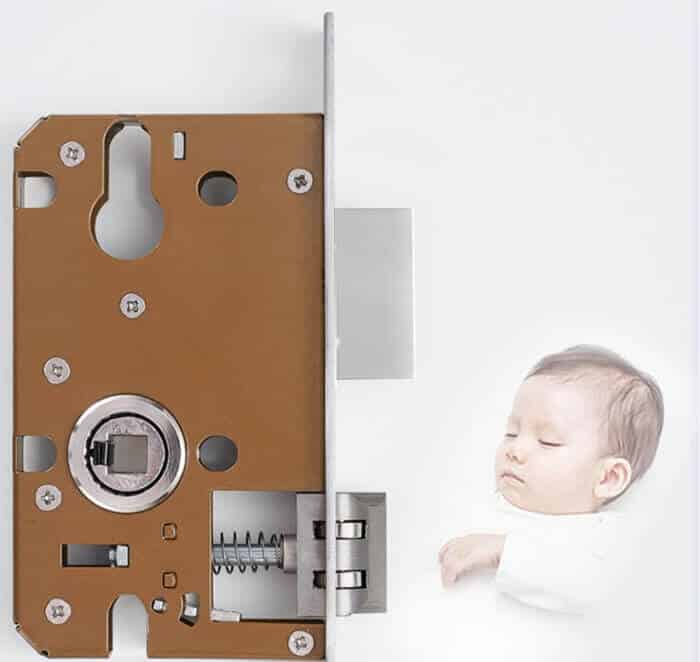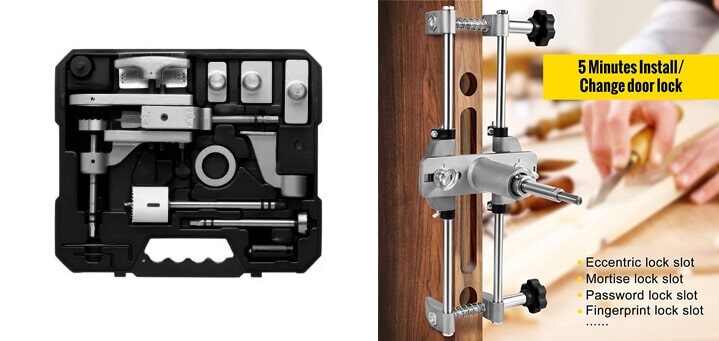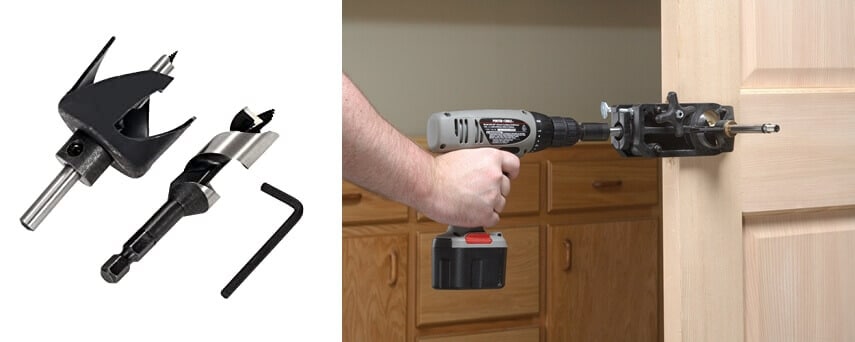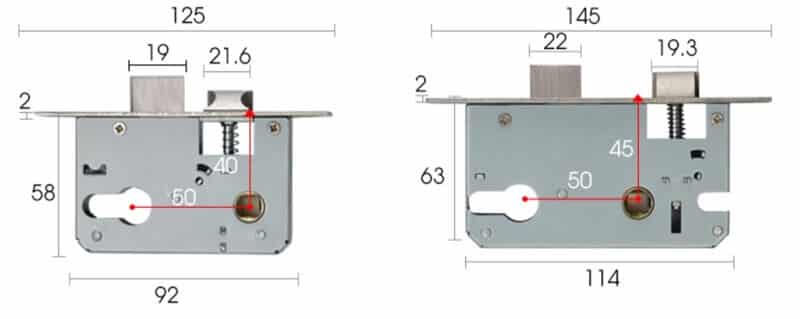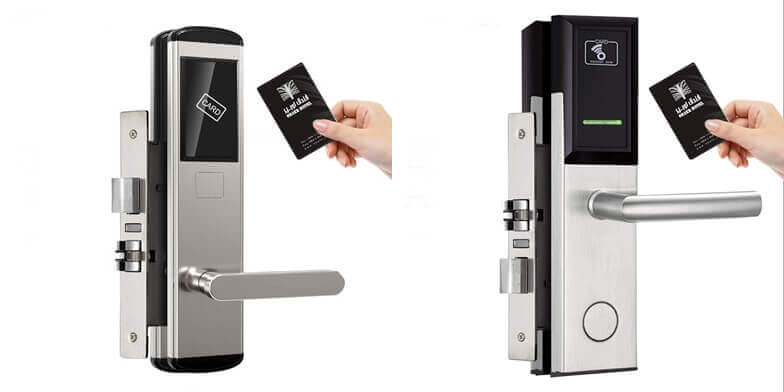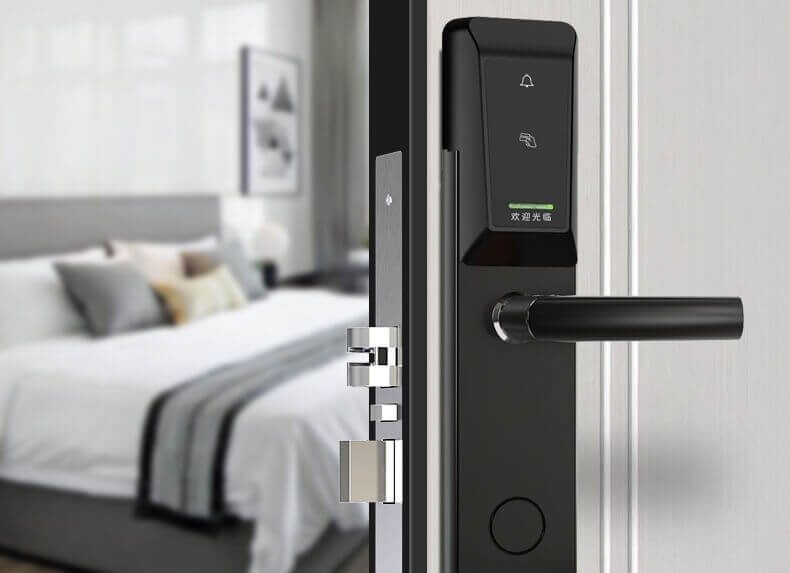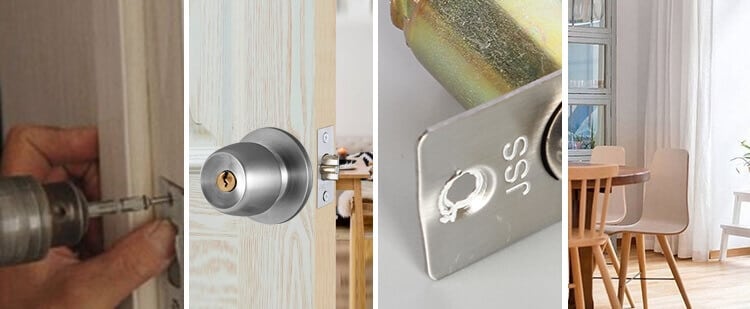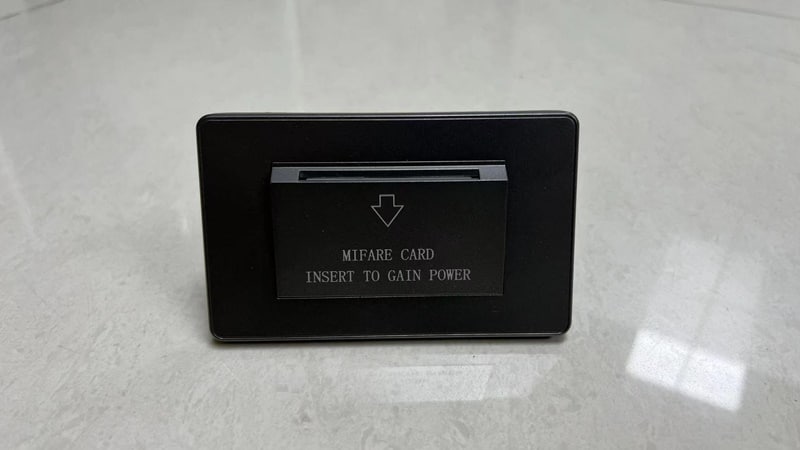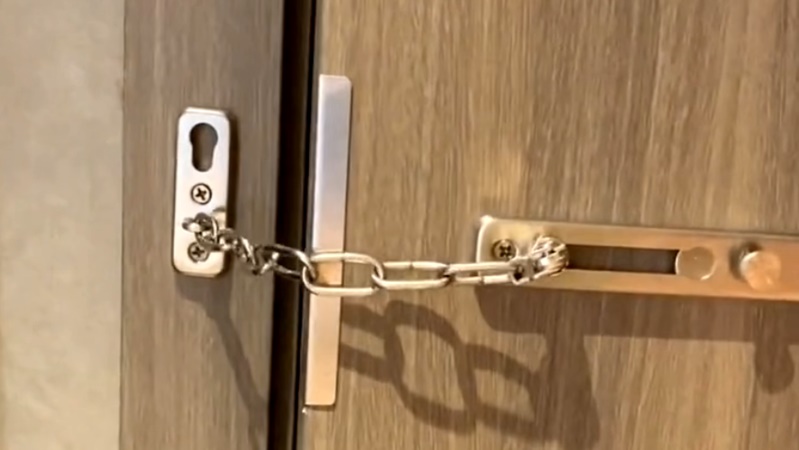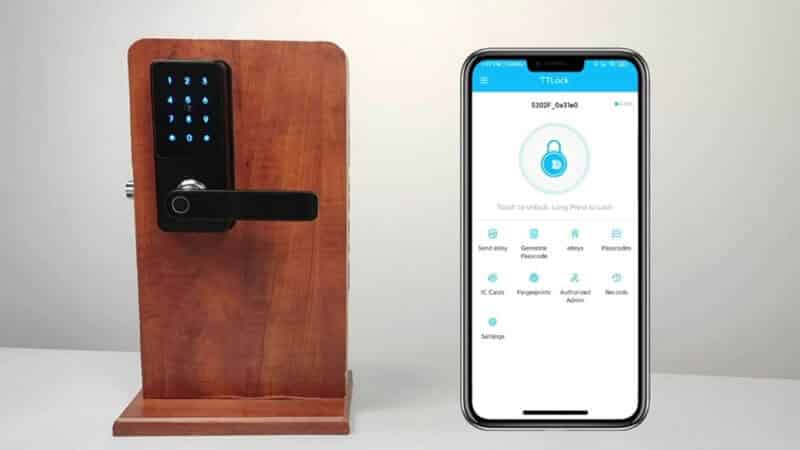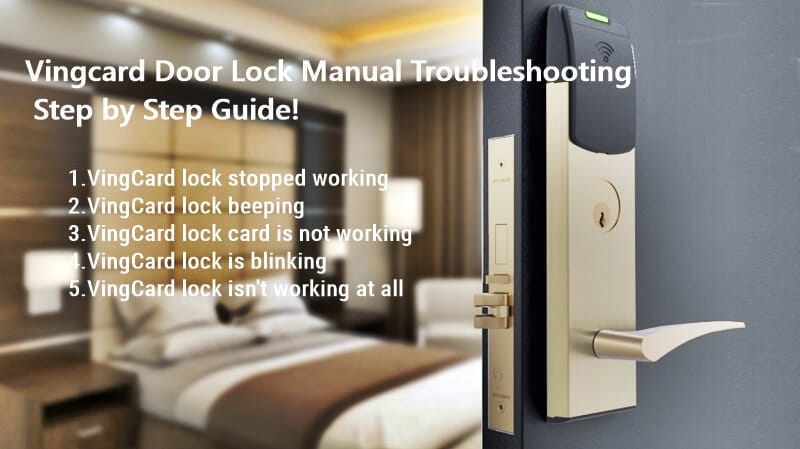Mortise Lock vs. Cylindrical Lock: What’s the Key Difference and How to Choose?
This article will detail the key difference between mortise lock vs. cylindrical lock and how to choose the most suitable one for your door.
Mortise and cylindrical locks are the most often used two types. They are often used for commercial and residential purposes, keeping your hotel or home safe.
And both locks on some doors may look similar. Still, they can vary widely regarding quality, security level, price, and operation. In this article, we’ll review what sets them apart and their advantages and disadvantages to help you decide which is right for you!
Mortise Lock vs. Cylindrical Lock: Advantages and Disadvantages
Mortise lock Advantages:
- Higher Security: Generally considered more secure than standard cylindrical locks due to their more complex internal mechanisms.
- Durability: Often built to be robust and long-lasting, making them suitable for high-traffic areas.
- Multiple Functions: These can often be integrated with other door functions, such as a deadbolt within the same mechanism.
- Aesthetic Variety: Available in a wide range of styles and finishes.
Mortise lock Disadvantages:
- Installation Complexity: Requires a larger pocket to be cut into the door, making installation more involved and typically more expensive.
- Cost: Generally more expensive than cylindrical locks.
- Maintenance: This cThe complexity of internal mechanisms can be more challenging to service.
Cylindrical lock Advantages:
- Ease of Installation: Easier and quicker to install compared to mortise locks. This often makes them more cost-effective for large installations.
- Standardization: Many cylindrical locks are standardized, making replacements and upgrades easier.
- Cost: Typically less expensive than mortise locks.
- Simplicity: Easier to service and maintain due to simpler internal mechanisms.
Cylindrical lock Disadvantages:
- Security: Generally considered less secure than mortise locks, though high-security cylindrical locks are available.
- Durability: It might not be as durable as mortise locks in high-traffic areas, though this can vary based on the quality of the lock.
- Limited Functions: Might not offer as many integrated functions as some mortise locks.
A mortise lock might be better if high security and durability are top priorities. However, a cylindrical lock could be more appropriate for easier installation and a more budget-friendly option. Always consider the specific requirements of the door, the expected traffic, and the overall security needs when making a decision.
Mortise Lock vs. Cylindrical Lock: Security levels
Mortise locks are more secure than cylinder locks. A mortise lock is fitted into a pocket in the door, while a cylinder lock sits on top of the door. This makes it harder to drill around or through the door to gain access. They have a wider chassis and a thicker door frame than cylinder locks.
In addition, they use a longer bolt assembly for added protection against forced entry.
The mortise lock comprises three main parts: the deadbolt, spindle, and latch bolt. The latch bolt has a “bob” on the end, preventing it from being pushed back into the door frame when locked. This eliminates any chance of prying open your door by inserting something small between the door and frame (like a credit card).
A cylinder lock has two components: the knob/lever handle (or push button) and the rotating cylinder core assembly. When you turn your key in this type of lock, it rotates both components to unlock them from each other.
Mortise Lock vs. Cylindrical Lock: Installation
Mortise locks installation
Mortise locks are more difficult to install than cylindrical locks. The main reason is that mortise locks require much time and effort, while cylindrical locks don’t.
Mortise installations are more complicated and require more professional tools to install. Because you have to cut the pocket in the door where the lock will be installed, it would help if you also drilled holes into your door, which requires a lot of precision when drilling holes into your walls and doors.
Cylindrical locks installation
A mortise pocket is a cavity cut into the edge of your door and into which you will put your bolt. This cavity can be made with chisels and saws to special drilling machines (which may also cut grooves for hinges).
If you’re installing new doors, this might not be too much trouble—but if you’re looking at replacing an old lock with one that doesn’t match its current configuration well enough, it could cost more time and money than expected.
In contrast, all you have to do with cylindrical locks is unscrew some screws and then insert them into their corresponding holes in the lock’s faceplate; this only takes minutes instead of hours!
Mortise Lock vs. Cylindrical Lock: Durable
Mortise locks are more durable than cylinder locks since they have more robust materials like steel forming their construction; they can take more abuse without failing over time.
And because they aren’t installed flat against the surface of your door like cylinders, there’s less chance that someone could climb up from underneath and pry open your lock mechanism with a screwdriver or other tool.
Mortise Lock vs. Cylindrical Lock: Materials
Both locks are made from metal, but mortise locks have more parts and a thicker body, which means more metal can be used in construction. Mortise locks also have a more extended tongue, making them more secure than cylindrical locks.
Mortise Lock vs. Cylindrical Lock: Availability of Grades
Mortise locks are available in grades 1, Grade 2, and Grade 3, while cylindrical locks are not graded. The grade of a mortise lock determines how secure it is.
Mortise locks with a higher grade will be more durable than those with lower rates, and it may be necessary to replace them when there is extensive wear or damage from burglaries.
Mortise Lock vs. Cylindrical Lock: Cost
Mortise locks are more expensive than cylindrical locks because mortise locks are more complex and made of more costly materials.
Most people will opt for the cheaper option because installing and replacing on the fly is easier. However, if you want a lock that will last longer and is easier to repair if something goes wrong, you might consider investing in a mortise lock instead.
It’s a simple matter of supply and demand: mortise locks are more difficult to produce, so the price tag reflects their higher cost of production. That means that mortise locks require more time and labor during installation, which increases the overall cost—but not much if you select a high-quality brand like Schlage or Kwikset smart lock.
Mortise Lock vs. Cylindrical Lock: Application and Security Level
A mortise lock is better for commercial applications because it has a more complex and high-security mechanism. Such as hotel door locks and fingerprint door locks are all mortise locks.
A cylindrical lock is better for residential applications because of its simple mechanism and lower security level.
You should use a mortise lock as your front door locking system or any other heavy-duty purpose wherever your door is opened frequently and quickly, such as a building entrance or office room.
In contrast, you should use cylindrical locks on the bedroom doors or closets that are not open and rarely used by visitors.
Please note that some hotels still use old-fashioned cylindrical key locks; they can no longer meet the security needs of modern hotels, so please consider upgrading your current old cylindrical key keys to a mifare RFID hotel locks System or mobile APP hotel lock system.
How to choose between a mortise lock & cylinder lock?
Before you begin looking for a mortise lock and cylinder lock, there are some things you should consider. The following are the most important factors when choosing between these two locks:
- Security Level: What level of security do you need? If it’s low, you may want an easier-to-install cylindrical lock. But if your system requires high levels of protection and you want something more secure, a mortise lock would be the better choice.
- Door thickness: The thicker your doors, the more sturdy they will be. If your door is made from thin metal or plastic materials, you may have difficulty installing a mortise lock because it would not provide enough support for the locking mechanism.
- Door type (swing direction): Hinged and sliding are two main types of doors. Hinged doors open outward while sliding doors open inward toward each other — either type can accommodate either lock!
- Door Size: Most locks require that their hardware fit within ¾” from each edge of the door, but some will accept larger diameters (upwards of 5″). These dimensions must match, so there won’t be any issues when installing them together later down the road!
- Door Material: The first and most important thing to consider is the material of the door. A wooden door will require different locks than a metal door or one made of steel.
- Price: This is one of the most important things to consider when buying any product or service because it determines how much money we can spend and whether our desired options are within our reach!
- Reliability: The reliability of a product is one of the most important factors to consider when buying security products. If a device does not work as intended, it is useless as a security measure. A reliable product will consistently perform its intended functions and protect against unauthorized entry when used or installed in your home.
- Durability: A good quality product should be durable enough to last longer than expected. Otherwise, I’ll spend wasted money unnecessarily because I had no clue what was happening when trying out different models firsthand during trial periods offered by retailers everywhere!
- Ease of installation: Homeowners and renters must install the lock easily. This can save them a lot of labor costs if they do not have to hire someone to install it.
- Ease of use: The ease with which someone can operate a lock should also be considered before making a purchase decision. If a device is difficult to open or use, it may become an annoyance rather than benefit its owners or users.
- Ease of maintenance: If you live in an apartment building that does not allow tenants to perform any maintenance, you will need an easy lock for someone else to maintain or repair if required. A good example would be replacing batteries or making adjustments because the door gets stuck occasionally due to wear and tear over time (but this doesn’t happen often).
- Appearance: People tend to pay more attention to beauty than function when purchasing products such as home security systems since there isn’t much difference between high-quality products anyway – so why not get something stylish?
- Brand: Brand quality is another critical factor when shopping for the best mortise lock. Many brands offer excellent products at affordable prices, but you can find an even better deal on high-quality products that suit your needs perfectly with research and knowledge!
- Availability of Parts: If something breaks down or goes wrong with your lock system, it’s nice to know that replacement parts are available, so you don’t have to buy an entirely new set to get things working again!
Conclusion
We hope this article has helped you understand the differences between mortise and cylindrical locks and that you are confident in making a choice. If not, or if you have questions about locks, security systems, or any other aspect of your business’s safety, please don’t hesitate to contact us! We’d love to help.

